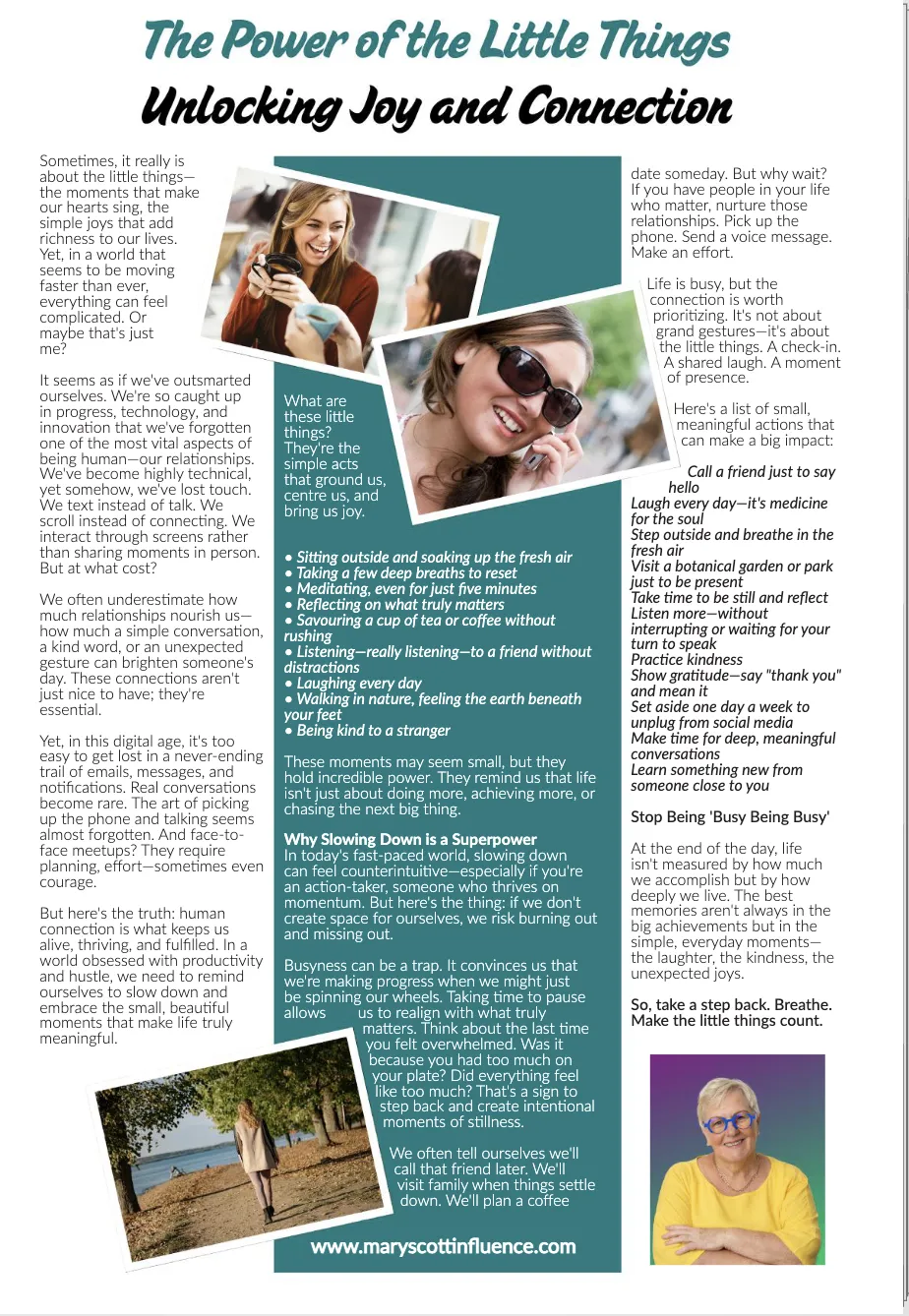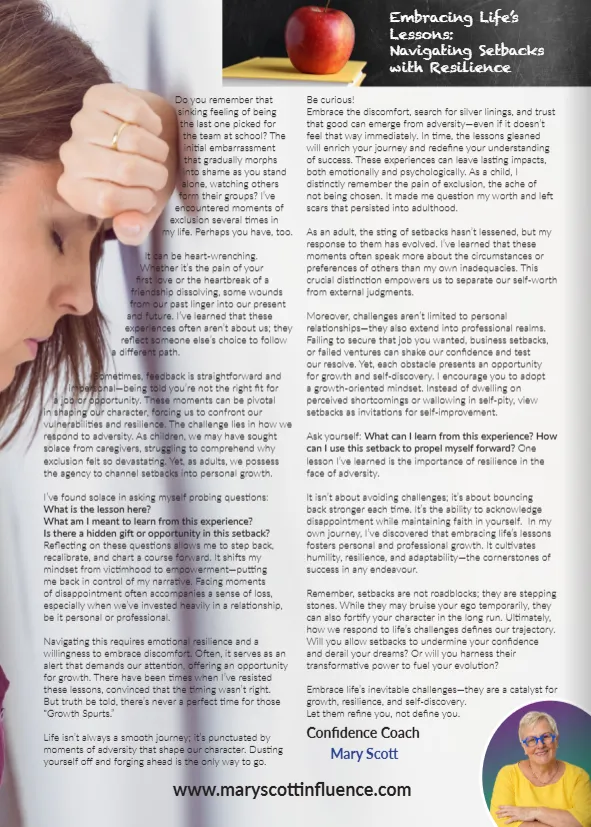Rise With Wisdom
Lead With Heart
Thrive and Reclaim
Life After 50
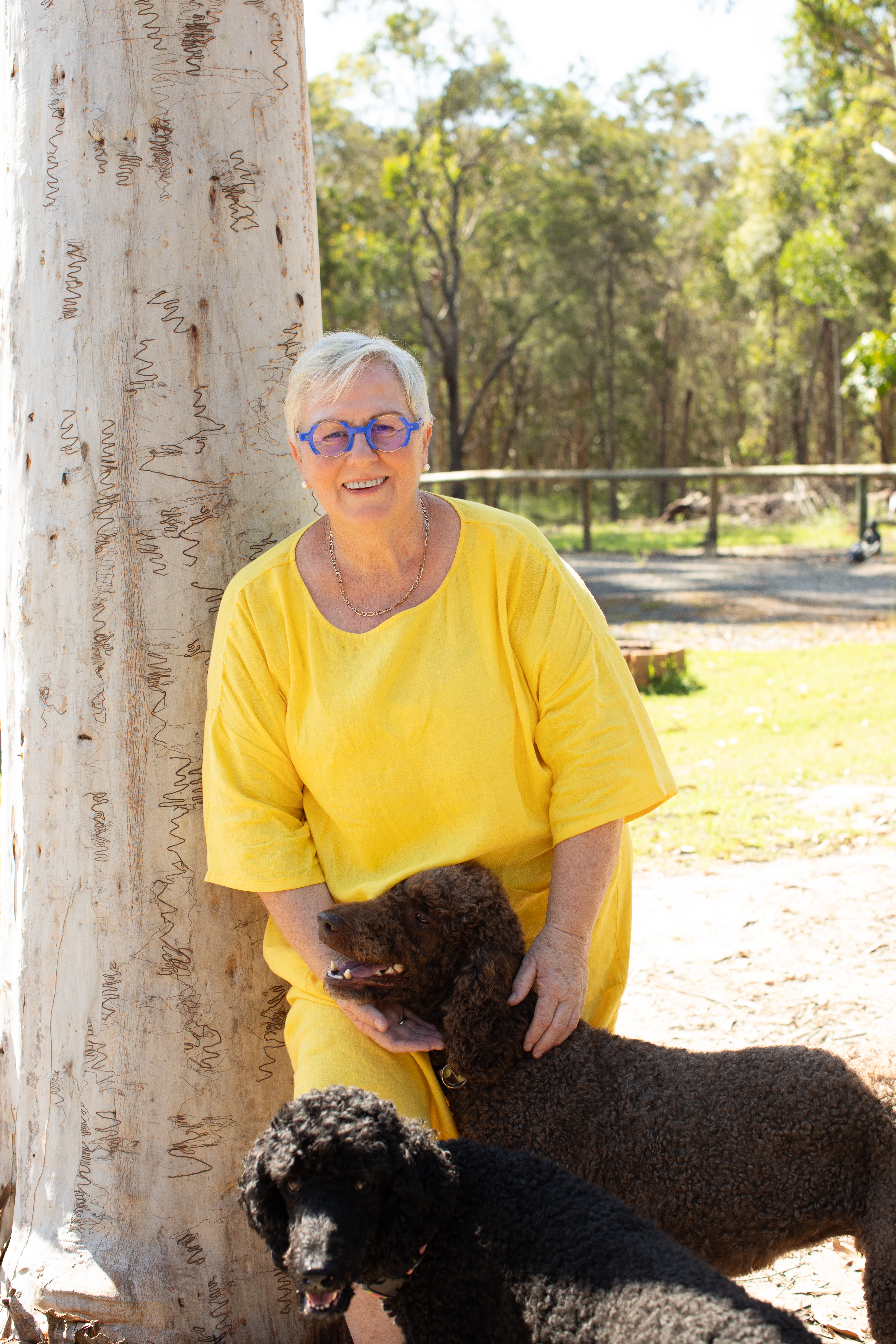
About Mary
With over three decades of experience, Mary Scott is a transformative Confidence Coach, seasoned entrepreneur, and published author dedicated to helping women over 50 reclaim their power, redefine their lives, and step confidently into their next chapter. Known for her authenticity, humour, and deeply positive outlook, Mary has made it her life’s work to empower women to thrive—no matter their age or circumstances. She has been honoured with multiple prestigious awards, including the:
2025 International Leadership Award
GIFEW Global Evolutionary Woman Award for Business and Entrepreneurship (2024)
The Global Super Mind Award from Expert Profile Magazine (2024)
AS SEEN ON

why work with mary
Tell us if any of this resonates with you
You are looking to change your mindset from inner critic to inner cheer squad.
Are you tired of your inner critic holding you back? By learning to replace self-doubt with self-belief, you can unlock a new level of confidence that empowers you to take bold action and trust in your abilities.
You are ready to take your life or business to the next level.
Feeling stuck or uncertain about the direction to take? Whether you’re a new business owner or navigating a personal transition, getting clarity is the first step to creating forward momentum.
But you have been battling with limiting beliefs, wondering if you are capable of achieving your dreams.
Do you find yourself holding back because of limiting beliefs that restrict you from reaching your full potential? Your limiting beliefs don’t define who you are or what you can accomplish.
If you said “YES” to any of the above, then you’re in the right place!
SERVICES
What mary Offers
1:1 Coaching Sessions
Group Coaching Sessions
Masterclasses
Bootcamps
Workshops
Free Resources
Success Stories
Get inspired by clients success stories
Mary is a natural facilitator of learning and is more than comfortable working in a group situation. Her reciprocal style makes one feel valued and heard, but she isn't shy to give the group the hard work when it's needed. It is a space where I have been able to explore who I am as an entrepreneur and cheer squad member. I have felt safe enough to be vulnerable, and consequently, I have become more authentic in my business & in my life.
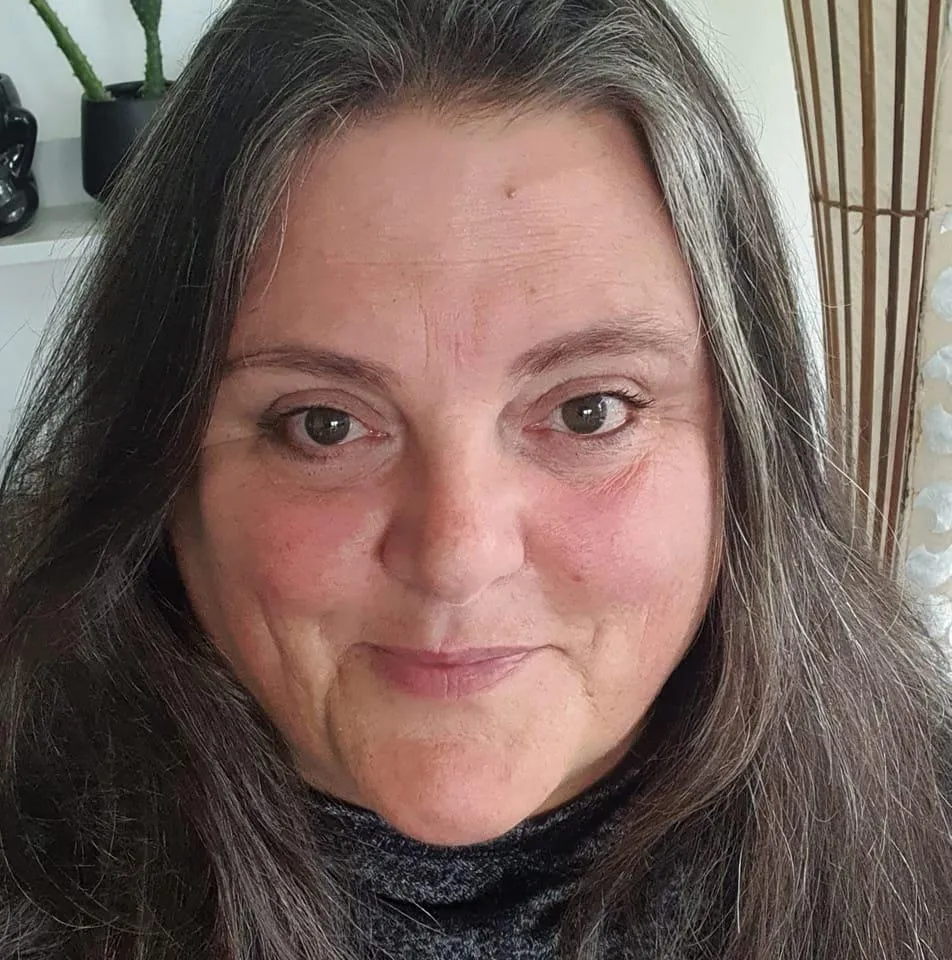
Calli Veludos
The Ark Education, New Zealand
Learning from Mary has been a windfall of blessings. I got to unwrap little surprises like bits of luscious candies - each delicious and satisfying. Where I had been maintaining the status quo, Mary challenged me to gather my own confidence and inspire others in my sphere of influence. She also gave practical tools to grow my audience and engage with them in strength and vulnerability.
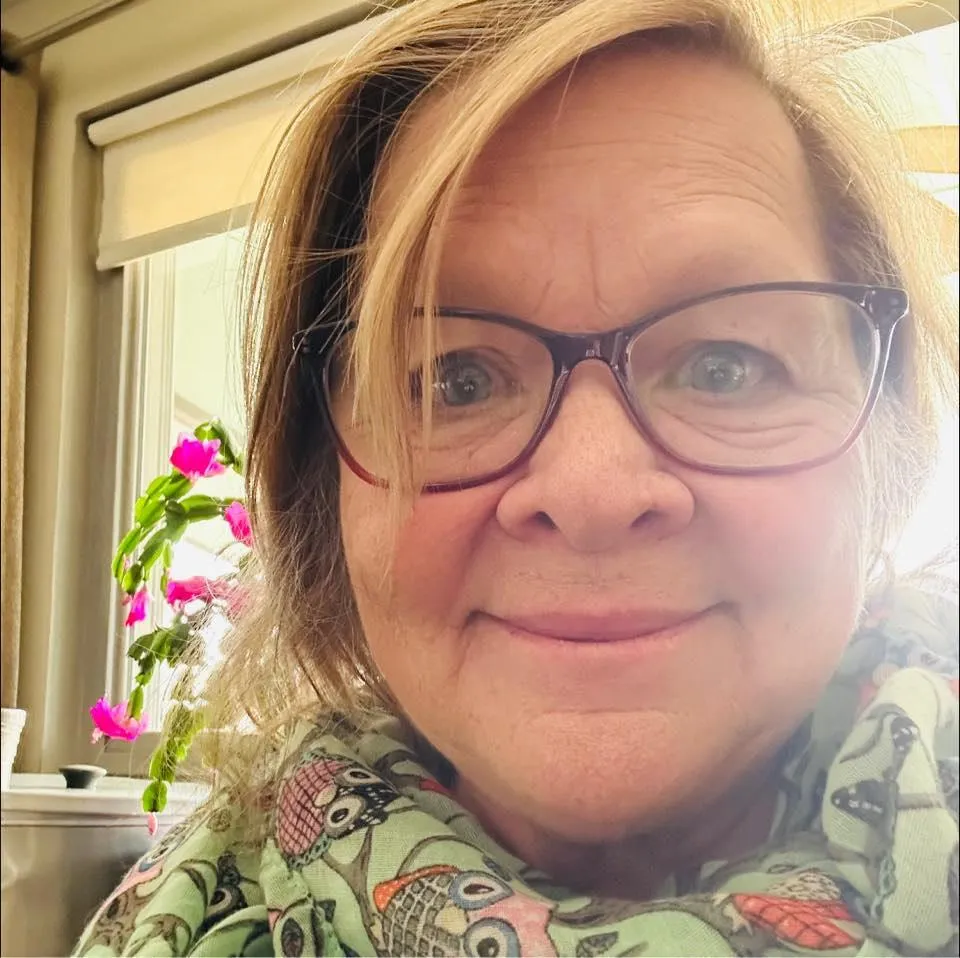
Kathy Joy
Author, United States
Mary has a true gift for creating organic, powerful spaces where growth feels natural and safe. Her workshops and bootcamps helped me peel back the layers and reconnect with my purpose in such an authentic way. I always walk away with new clarity and courage.
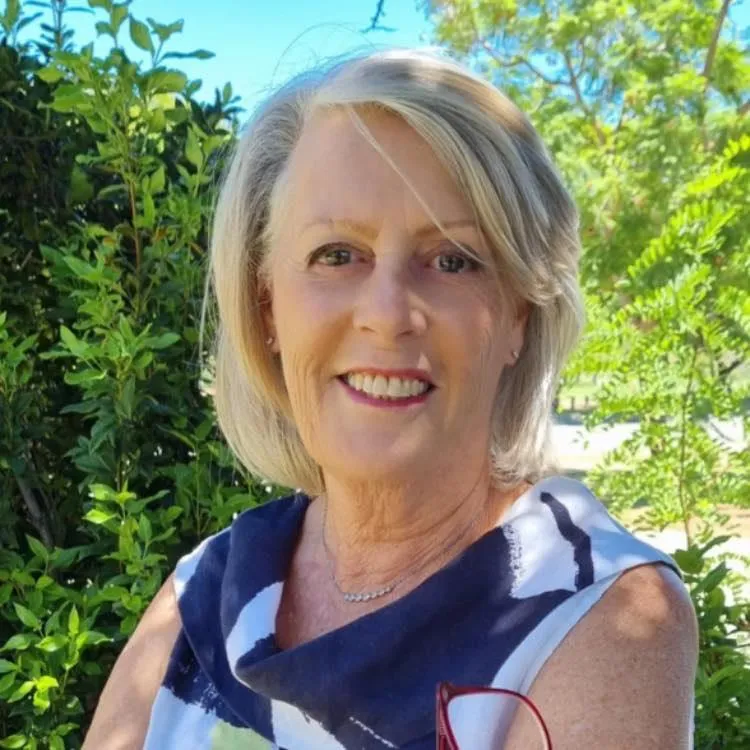
Jennifer Morrison
Parental Coach, Australia
Mary is like a jeweller of life. Sometimes we don’t realise how dusty we have become, how we don’t shine as brightly, and this is where she comes in. She gives us a good polish and explores all the area where the dust collects, and she clear it out. Mary gives us back our shine and help us all shine as brightly as we can.

Karen Cowling
Personal Coach, United Kingdom
introducing
Run Mary Run: 37-year dream
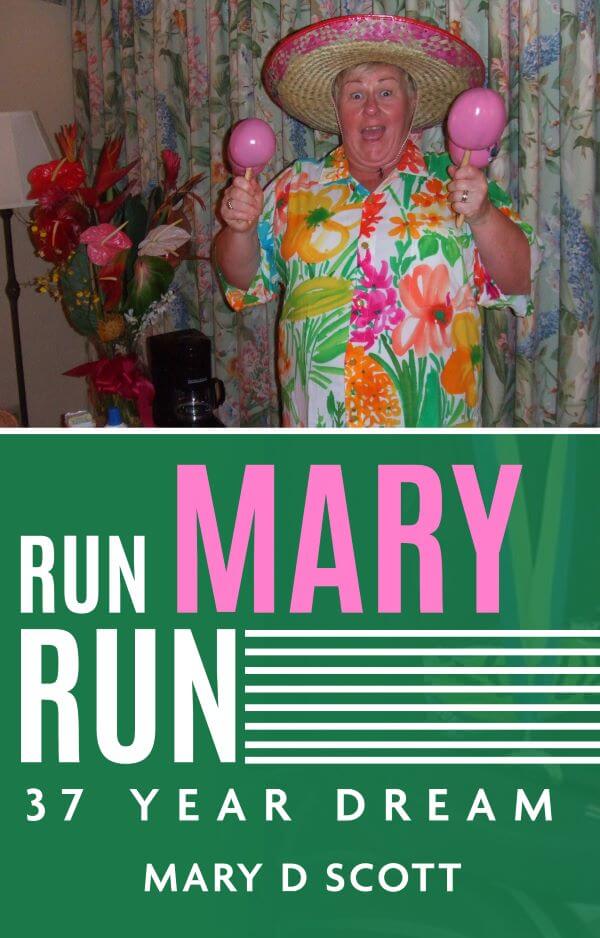

After all the learnings in my life, I realised that I wanted to share my message with more people and serve more people. So, I published my first book in 2021. This is a personal story of me finally achieving a 37-year dream goal of running the Boston Marathon and I hope it has inspired more people to live the life they dreamed of.

COMPANY
SUPPORT
SOCIALS
Copyright 2025. Mary Scott Influence Pty Ltd's Account. All Rights Reserved.

